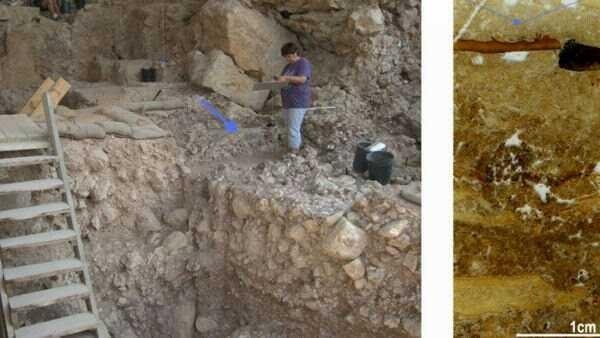Human Socialization Use Fire Since 300,000 Years Ago
Since when did humans use their heating, socialization as well as the fireplace of their dwelling? According to a recent study this time mentioned that humans actually started to control the function of fire for daily needs and socialization since 300,000 years ago.

The study is based on the findings of the Qesem Cave archaeological site near Rosh Ha'ayin, where evidence suggests repeated burning over a sustained period.
At that time it was believed that prehistoric man already had a very sophisticated social structure and intellectual capacity had begun to be developed.
#Man Use Fire For Socialization
The previous hypothesis expressed by University of Toronto and Hebrew University scientists suggests that humans first discovered fire about a million years ago.
But this opinion is not enough to answer the puzzle 'when was the first time people used fire for daily needs and socialization?' If archaeologists are able to answer, then most likely the first appearance of human culture will be resolved. Many scientists are still debating the use of fire, but not enough evidence to be introduced in science.

One team of Israeli scientists recently found evidence in the cave of Qesem, an archaeological site close to Rosh Ha'ayin.
This evidence illustrates the early history of first-time use of fire for daily needs and socialization began 300,000 years ago.
Excavation site Qesem cave has been ongoing since 2000, this research led by professor Avi Gopher and Ran Barkai from Tel Aviv University, Dr. Ruth Shahack of Kimmel Center for Archeological Science.


For years archaeologists have been trying to collect samples for analysis and identify archaeological material, including wood ash in the center of the Qesem cave.
With the help of infrared spectroscopy, they were able to determine the ingredients mixed with ash were bits of soil and soil that had been heated at very high temperatures.
The team of scientists tested the ash of morphology by extracting a piece of sediment taken from the fireplace and then in very thin slices.
These slices are placed under a microscope to observe the exact composition of the deposit material and reveal how the material is formed.
This method can distinguish many micro strata of ash, this proof is used repeatedly throughout the period.
From this it is clear that at that time humans used apibesar for daily needs and socialization since 300,000 years ago.
The findings are now published in the journal Archeological Science.

Then, around the fireplace (including inside the cave Qesem) archaeologists found stone tools used for cutting meat.
The stone tools are found only a few meters from the fireplace and have different shapes that may be designed for other activities.
In and around the outside of the cave Qesem found the bones of animals burned, thus describing humans using fire to roast their game.
According to Shahack, the variety of household activities has become a distinct part of life in the cave to the typical social look in modern humans, so the cave looks like a Base Camp.
These findings are considered archaeologists useful to improve the turning point in the development of human culture, it is clear when humans use the first fire to socialize and cook meat in the form of fires, as well as a meeting place between humans.
Human social and cognitive development has begun 300,000 years ago, these are signs of substantial change in human and biological behavior.
This marks a change in the look of the region and the new culture of the previous human 400 thousand years ago.
It was beneficial post
Great post, i enjoyed to post ..!!